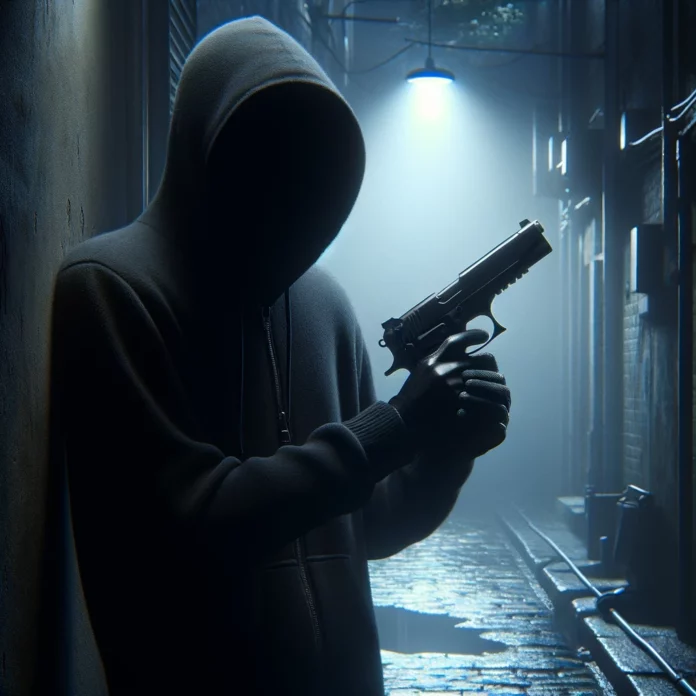By Samuel A. Lopez, Legal Analyst, USA Herald
[WASHINGTON] — In a landmark decision, the Supreme Court has agreed to take up the contentious issue of “ghost guns,” a term unfamiliar to many but significant in the realm of law enforcement and public safety. These firearms, which lack serial numbers making them difficult to trace, have become a focal point of legal debates and crime scene investigations across the United States.
Ghost guns are firearms assembled from parts that can be bought online or through private dealers. They don’t bear serial numbers, making them invisible to traditional tracking methods used by law enforcement agencies. Typically, these guns originate from “80% receivers,” parts that are 80% completed and can be finished by purchasers without significant technical skills. This legal loophole allows ghost guns to proliferate outside the purview of regulations that govern conventional firearms.
Further complicating the issue is the role of online platforms in the sale and distribution of ghost gun kits which adds another layer of complexity to the issue. These platforms facilitate anonymous transactions that typically bypass the background checks required for traditional firearm purchases, posing a significant hurdle for law enforcement’s gun violence prevention efforts. The anonymity that these sales afford creates a blind spot, where potentially dangerous individuals can acquire firearms undetected. Additionally, because ghost guns do not have serial numbers, tracing them back to their origin when used in criminal activities is extremely challenging, if not impossible, which impedes criminal investigations and thwarts the effective enforcement of gun laws. The ease with which these kits can be obtained online highlights the need for updated regulations and enforcement tactics that address the evolving digital dimension of firearm commerce.
The Supreme Court’s decision to hear this case follows a surge in ghost gun recoveries at crime scenes, with more than 19,000 instances reported in 2021 alone, a stark rise from previous years. The Biden administration’s 2022 regulation, which sought to redefine these parts as firearms requiring serial numbers and background checks, was struck down by lower courts, arguing that it exceeded the authority of the Bureau of Alcohol, Tobacco, Firearms and Explosives (ATF). The Biden administration appealed this decision, prompting the Supreme Court’s involvement.
Implications of the Case
“This Supreme Court case is not just a legal formality; it’s about addressing a glaring loophole in our gun control laws that impacts public safety nationwide,” says Samuel A. Lopez, a legal analyst and reporter for the USA Herald. “The outcome could redefine the boundaries of gun legislation and enforcement.”
The regulation challenged in court includes requirements for licensing, serialization, and background checks for all components used to assemble firearms, effectively treating ghost gun kits similarly to traditional firearms.
The regulation is universally applicable, encompassing all methods of assembly, whether the firearm is constructed from separate components, kits, or fabricated using 3D printers.This legal battle highlights the complexities of adapting old laws to new technological and social realities.
While the legal challenge proceeds, the Supreme Court has permitted the enforcement of the regulation to continue. Chief Justice John Roberts and Justice Amy Coney Barrett allied with the three progressive justices to constitute the prevailing side. Conversely, Justices Samuel Alito, Neil Gorsuch, Brett Kavanaugh, and Clarence Thomas were in favor of suspending the regulation throughout the appeal phase.
Looking Ahead
As the Supreme Court gears up to hear arguments this fall, the legal community and public alike await a ruling that could significantly impact the regulation of untraceable firearms. The decision could set a precedent that either strengthens regulatory efforts or underscores the need for new legislative approaches to gun control.
The Supreme Court’s intervention in the ghost gun debate marks a critical juncture in the ongoing dialogue about gun safety, rights, and regulation. As the case unfolds, it will undoubtedly attract attention from various sectors concerned with the balance between individual freedoms and collective security.
For more insights from Samuel A. Lopez on legal trends and issues, visit his bio at USA Herald.






